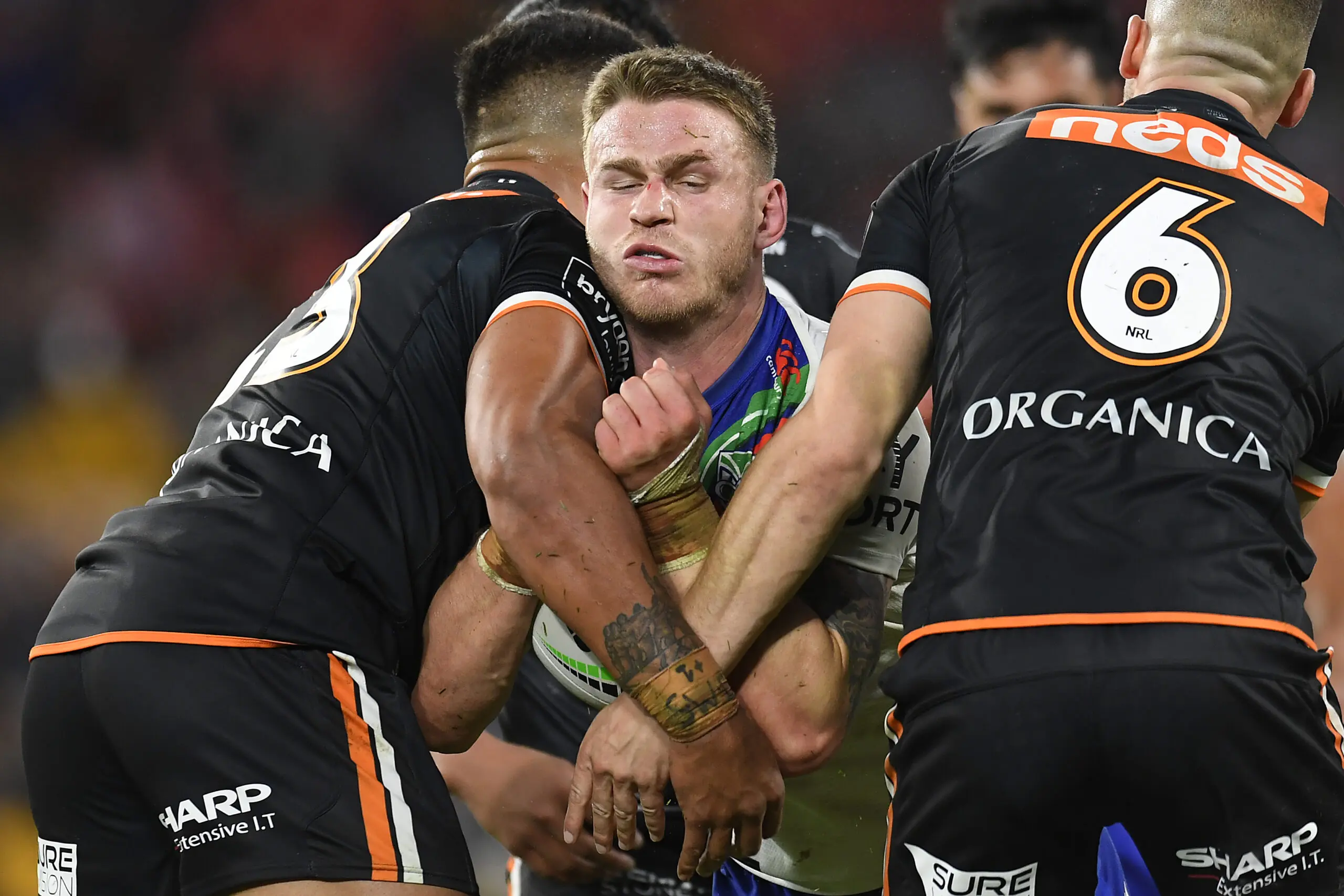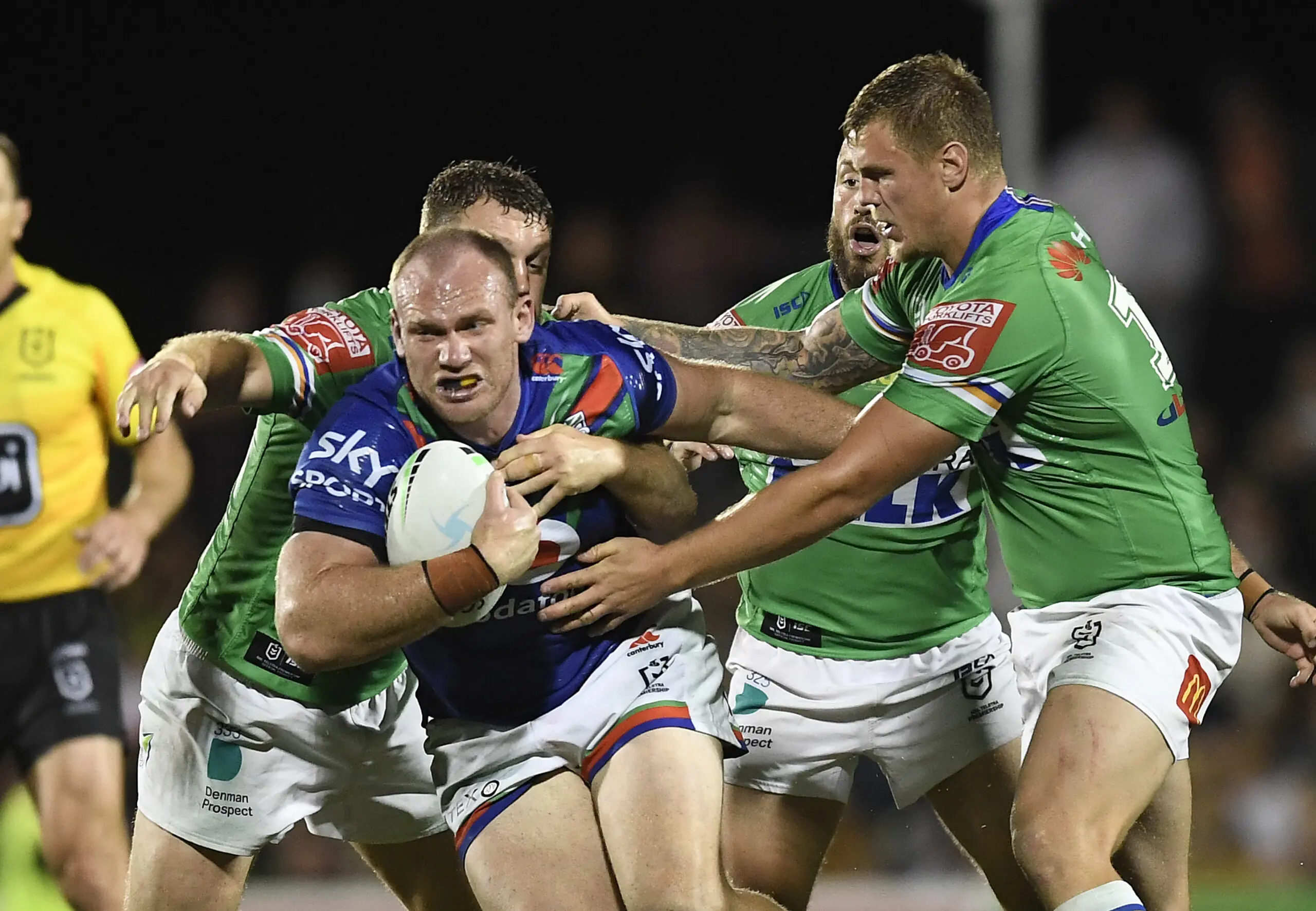Similarly to the tides of Auckland, the New Zealand Warriors have been ebbing and flowing since their inception nearly three decades ago.
Consistently inconsistent, the club, players and loyal fans have watched the rise and fall for years on end, hoping this 'one step forward, two steps back' lifestyle would give sooner or later.
Alas, deja vu continues to rear its ugly head across the Tasman.
The club hasn't played a game on Kiwi soil since August 30, 2019, and the news of a Round 16 homecoming clash against the Wests Tigers should fill fans with joy. A streak spanning over 1,000 days, yet the news has delivered more ill will to the side, something unfortunately only the Warriors can deliver.
The roster has been reformed since the start of the pandemic, with over a third of their current side Australian born. Ever since their 1995 inception into the competition, navigating the balance of Kiwi and Australian players has been one of the larger hurdles the New Zealand Warriors have had to face, something the club is still seemingly grappling with.

Standing alone as New Zealand's only side in the NRL, engulfing the side in Kiwi culture as their identity is an absolute must, yet you can't limit yourself to signing exclusively New Zealand born players. It's a death wish to hinder yourself in the recruitment market to that extent, and while COVID has robbed them of years spent on home turf, their Queensland base has made it easier for the side to sign Australian talent.
Sitting a distant second to rugby union in New Zealand, rugby league doesn't have the rich pathways and sheer junior competitiveness that Australia does, allowing a host of youngsters to shine in the New Zealand pathways, yet fail to make that leap to first-grade. Compare the successes of the Warriors former Under 20s sides to their NRL results, its apples and oranges.
So while externally the club is cheering for their beckoning return home, internally we are seeing Australian born players begin to realise playing for the Warriors now means residing in New Zealand fulltime, a seemingly daunting reality for some of their core figures.
Euan Aitken has already announced he'll be departing the Warriors at the end of 2022 instead of making the move across the ditch, while former-Brisbane prop Matt Lodge has recently rejected a three-year, $2.1 million extension with the club, leaving severe doubts over his future with the side.

Rumours have swirled since his arrival that Ashley Taylor would only spend a year at the Warriors while they're based in Queensland before joining Wayne Bennett at the Dolphins, but the real big fish is Reece Walsh.
It's hard to believe that the fullback only made his NRL debut with the Warriors in late April last year, and despite being contracted until the end of 2023, it's getting harder and harder to imagine the young superstar staying put.
The 19 year-olds' partner and one-year-old daughter reside in Queensland, meaning Walsh must choose whether to uproot their lives and bring them across the ditch, make the move without them, or depart the club. It's an incredibly difficult decision for a teenager to make, and with his former club in Brisbane as well as the newly former Dolphins sniffing around, the third option is seeming almost a certainty.
It's a conundrum that will never waiver for the side, and begs the question, would some sort of 'international allowance' assist the side? A small pocket of extra salary cap set aside for Australian-born players to entice them to sign with the club and stick with them, as opposed to players using the club to get big minutes on the field in the spotlight, and using that leverage to return to Australia with a bigger paycheque.
The decision to align a Queensland Cup side with the Warriors is a great first step to set up a system to develop Australian players and give their Kiwi youngsters time in a more competitive competition before making the leap to first-grade football.
It seems there's no quickfire solution for the Warriors, yet a vague blueprint is there to make those baby steps in the right direction, and put the New Zealand outfit on track to be consistently competitive. There's still a ways to go, but there's undoubtedly a light at the end of the tunnel.






